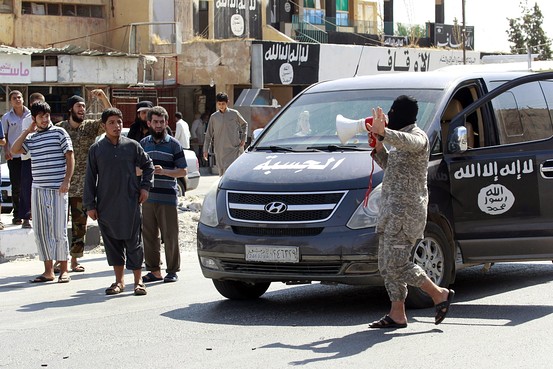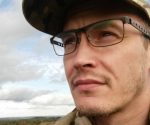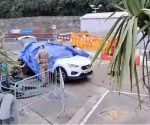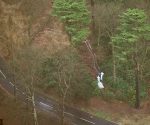British volunteers in Syria; Part Three: Dead men tell no tales
Huang Lei, the subject of the previous article in this series, was reported to have had two colleagues from Britain with him in the group that were going to travel to Afrin to fight the Turkish forces and their FSA auxiliaries. These two other men, according to the BBC, had chosen to remain anonymous. There could be a good reason for this. It could be that these men want to vacation in Turkey in the future without being arrested (see Part One in this series). It’s probably not out of fear of attracting the attention of counter-terror police on their return to the UK, because to date no-one who has fought with the YPG has been charged for that offence. Here’s one out of left field: the insistence on anonymity could be in order to disguise the fact that serving British Army and Royal Navy service personnel are operating in Syria, illegally†, with the YPG – and before that, helping to orchestrate the advance of the Syrian Democratic Forces (SDF) across Raqqa province where ISIS always gave way in the end after a show of a battle – and before that embedded in Free Syrian Army/Al-Qaeda ranks fighting Syrian Government forces.
Huang Lei’s anonymous compadres remind the author of an image he has seen; a photo of Jac Holmes, one-time IT worker and decorator. Jac Holmes was the one individual in this particular photo whose face was not blurred out – well, since then a version has been found that shows these faces, but the example is good for the point. This war in Syria must be remembered as the War of the Covered Faces. Remember this photo from 2014?
It spawned an article at FBEL about the psyop that is ISIS. Please do read it, because, as 2015 began, it predicted what was going to happen with regards ISIS, and its evaporation ahead of a US invasion by Kurdish proxy. The war in Syria, when it hasn’t been pitched against the Syrian Government, has largely never been what it has been made out to be. It is still called a civil war by politicians and corporate-media; but it was an invasion. The deeply pervading deception, and the way it has been applied by the US and UK in thick layers over the truth of the conflict, is why it is the War of the Covered Faces.
The illusions conjured up by the Anglo-globalists extend to this latest piece on British “volunteers” in Syria. Consider Jac Holmes; the photo of him with his three amigos is meant to show the YPG’s “223” sniper team, of which Holmes was supposed to be a part. Does it ring true? Holmes had no prior military experience before he went to Syria – granted, he had been there since 2015 – for longer than the average dead volunteer. But of course, the reader hadn’t been introduced to this fact yet. Jac Holmes died in October 2017. He had been “clearing mines” or deactivating IEDs, in Raqqa. The following was the confused account given by Holmes’ mother in the same article which contained the photo mentioned above:
Kurdish officials told Ms Blannin her son had been clearing mines, she said, adding: “It is all a bit sketchy but I am guessing he stepped on a landmine or one went off close to him, or it was a suicide vest.”
Does it make any sense?
In Part One of this series, we were introduced to Kevin Benton. He knew Jac Holmes, and knew about his demise. “Jac was in the sniper team and I was in the pushing team so we would be in the same area and see each other a lot.” This doesn’t clear things up. Benton refers to two sets of teams – snipers and pushers. We get an idea about what “pushers” do from an article that tells Benton’s story:
Kevin and his fellow fighters spent their nights clearing the streets of Raqqa of booby traps and pushing forward to reclaim IS territory. He was almost killed several times – including once where he got shot in the arm and the leg in an IS ambush.
From other accounts we learn that an IS ambush seems to be centred around an IED explosion; one of these “pushers” would set off an IED, and then that would then trigger an attack by the enemy to push home an advantage gained by the surprise of the mine detonation. That would be an expensive way to clear mines, so presumably mine clearance is about detection and deactivation. But would night time be the best time to do it?
There is another account of what happened in Raqqa on these night patrols, and it’s supplied by the shadiest character of all the British volunteers; “Macer Gifford”. This appellation is not even the real name of this supposed ex city trader, and yet the audience of his Establishment-line-towing material, of which there is reams in the all-too-happy-to-facilitate corporate-media, are expected to trust him. In one particular Independent piece during the campaign for Raqqa, came this glimpse of what it takes to survive to be able to return to the UK to set up various charities and publicity events like speaking engagements at University College London.
Mr Gifford has been urging members of his squadron to fight in the day rather than using surprise night attacks “because there’s less risk of standing on an IED”.
It would appear that attacks went ahead without any regard for the prospect of a mine being hit: for Gifford does seem to indicate that there wasn’t any of the preparation of an area that suggests itself with the term “mine clearing”. (Again, did they really detect mines at night?)
Now consider Luke Rutter. He arrived in Syria in March 2017. He died in July, 4 months later:
An inquest in Liverpool heard he was “more likely than not” to have been killed by either by an improvised explosive device (IED) or a rocket.
A post-mortem examination showed the cause of Mr Rutter’s death was blast injuries.
Mr Rutter was “hit with projectiles and shrapnel with immediate fatal consequences,” the coroner Andre Rebello said.
Another version confirms that Rutter died in an IED ambush:
A YPG source said Rutter was part of a foot patrol a few miles from the city centre when it came under heavy fire after a fighter stepped on a landmine.
It is understood that Isis fighters opened fire with rocket-propelled grenades and small arms.
When Oliver Hall died, the YPG put out a statement that couldn’t create any confusion about the matter:
On November 25th, 2017, Canser Zagros (Oliver Hall), who was involved in mine clearance work, martyred as he was trying to defuse a booby-trap.
Is this really true? Oliver Hall was another volunteer who came to Syria without any military experience. It’s not clear what profession he had been in as he arrived in Syria in August 2017, but it damn sure wasn’t bomb disposal. Is the author alone in finding this highly suspect?
By the time of Hall’s death, of course, hostilities were supposed to be over (in Raqqa at least). The operation that Hall was engaged in was mine clearance. And yet, from another source is this story:
Two little boys among the civilians entered a building which was known to have been [booby-]trapped before,” the source told the Guardian. “Oliver entered the building to take the children out. He led one of the boys out and ran back to save the other. That’s when the booby-trap detonated, killing Oliver.”
Here is another case of mine clearance by subsequent death.
When Jac Holmes died, it was right on the borderline of the supposed date of the cessation of hostilities in Raqqa, and this probably accounts for the confusion about the cause of his death; the correct story would have to fit the right war/peace circumstance, but it seemed that somebody didn’t know if he’d died before the battle ended, or after.
In any case, the author is quite astonished about Jac Holmes’ case in particular, and thinks it provides a key to a way of thinking to arrive at a truth. Why would a sniper be doing mine clearance? As much as it would be surprising in the peace time, it would be more so if Holmes’ had been killed “clearing mines” while hostilities raged on. Maybe the author is a bit stupid, but isn’t someone who is in the sniping team a bit too valuable to be clearing mines (and, in a war time scenario wouldn’t he have something else to do as per his costly training)? Surely, sniping isn’t a skill that one can stumble on to a battlefield and pick up instantly. Why would the skill be wasted in Raqqa by having Holmes perform a risky task? Raqqa wasn’t the end. The SDF went on to “capture” the land south of Deir es Zor east of the Euphrates. Or was Raqqa the end? We can say with some certainty that a new phase began afterwards that featured some interaction between ISIS and the US/SDF in Deir es Zor province that would have had to have been closely guarded (rather like the activity at the end of the siege of Raqqa, as we shall see). Had Holmes served his purpose? Did the manner of his death reveal what had, all along, been his true value to the SDF? Was Holmes really a sniper? Or was he cover for others who could shoot, but who wouldn’t be put in harm’s way, and couldn’t be photographed in propaganda material?
Let’s be clear about this in a final analysis. Unfortunately, the men that have been written about herein weren’t heroes; they were suckered victims of a meat grinder that was wholly engineered by people further up the chain of command. Raqqa didn’t fall by the effort of Jac Holmes, or Oliver Hall, or Luke Rutter. It was handed over in a deal which saw nearly 4000 ISIS fighters leave the city to move to new positions to counter Syrian Arab Army success moving towards Deir es Zor.
There are several sources that can confirm this as a matter of truth. One of the most well known is that of Talal Silo, who defected from the SDF:
[Silo] told Reuters in an interview that the number of fighters who were allowed to go [from Raqqa] was far higher and the account of a last-ditch battle was a fiction designed to keep journalists away while the evacuation took place…
“Agreement was reached for the terrorists to leave, about 4,000 people, them and their families,” Silo said, adding that all but about 500 were fighters.
He said they headed east to Islamic State-controlled areas around Deir al-Zor, where the Syrian army and forces supporting President Bashar al-Assad were gaining ground.
For three days the SDF banned people from going to Raqqa, saying fighting was in progress to deal with militants who had not given themselves up.
“It was all theatre,” Silo said.
“The announcement was cover for those who left for Deir al-Zor”, he said, adding that the agreement was endorsed by the United States which wanted a swift end to the Raqqa battle so the SDF could move on towards Deir al-Zor.
Even the BBC produced a high-profile expose on the “dirty secret” of Raqqa – although they talked about the evacuation in terms of hundreds.
This redeployment of ISIS to suit the SDF, and to hinder the Syrian Government forces is recurring feature of the war after 2014. It happened when ISIS in Mosul were allowed to leave for Palmyra. Even in the first part of this series, this feature cropped up with the sudden fall of ISIS during the Al-Saddadi offensive.
ISIS escaped from Raqqa after it put up an appearance of a fight, and the Britons who died there were very badly deceived for the highest price possible. Talal Silo said that Raqqa was theatre – well, then it was snuff theatre, where conned young men were killed for the show. The author doubts very much that any of the fellows featured here died deactivating a bomb; it’s a ludicrous idea. They were pushed in to a killing zone, and it didn’t matter if they were shot, or if they were blown up, because it was all for the appearance of a war. Let it serve as a lesson for any fools who might be thinking of putting their lot in with any instrument of the psycopathic Anglo-globalist cabal.
† It’s true that the corporate-media does sometimes openly claim British military forces on the ground in Syria. For instance, the Daily Mail once published a boys-own fantasy about SAS exploits to capture the Al Tabqa dam. The truth of this story, in fact, involved a negotiated ISIS withdrawal from the area that took place a couple of months later after the assault; even the Mail had to admit that “while the Tabqa dam has been largely wrested from the terrorists, its far southern end remains in IS hands.” No wonder the Ministry of Defence didn’t want to comment. In any case, officially this was a US operation, and the SAS and the British Government remain shy about being found out as war criminals.



















